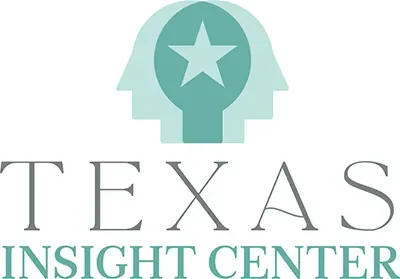
Grief Therapy in Houston
Danny Clark, LCSW
713-364-8776

Grief Therapy and Counseling with Danny Clark, LCSW
Have you recently experienced a loss that makes it difficult to get through your day? Grief shows up in many forms throughout our lives, and there are ways to make it manageable. I specialize in grief therapy at my Houston office near the Rice Village. I am also able to provide grief therapy in Houston or to anyone in the state of Texas online.
What is Grief?
Grief is a natural response to loss, often experienced after the death of a loved one. While grief is a normal and expected emotion, it can also be an incredibly difficult and complex experience that can affect every aspect of a person’s life. Coping with grief can be overwhelming and confusing. Seeking grief therapy is not a long-term process.


How is Grief Therapy Different?
The experience of grief and loss can impact several aspects of our lives. It can be unexpected for some people to realize how intense their emotions are during difficult times of sorrow.
When someone goes through a significant loss, it can affect them emotionally, physically and spiritually. Grief counseling or therapy is a way to help tolerate major life changes such as losing a loved one, getting divorced, losing a pet, losing a job, or experiencing other kinds of loss.
If you are unsure you need therapy, call me and we can discuss it. Counseling is not needed for everyone and sometimes it can be helpful for just a couple of support sessions. If you want to learn more, complete the form below and I will answer all your questions.
Grief is not easy, and grief therapy can help make it manageable.
Getting the right therapist who is actually trained to support a grieving family is important. I specialize in grief therapy and counseling for children and adults and have extensive experience working with families, community agencies, churches, synagogues and organizations all over the U.S. My unique insight in working with families after a traumatic loss, such as suicide or accident, helps ease the process. I am extremely sensitive to the stigma surrounding subjects like suicide and substance overuse and have published large studies related to the subject. Please see my reference page if you want to learn more about me.


Request a consult.
Several types of mental health professionals provide grief counseling or therapy, including psychologists, licensed clinical social workers, and licensed professional counselors. However, finding one with the expertise for your family is a priority. Give me a call or complete this form and we can find out if therapy with me here in Houston or online is best.
Call Now
Email Me
Or fill out a contact form
Frequently asked questions about grief therapy
What type of grief therapy is needed when a person cannot get over the grief of losing a loved one?
When a person cannot move through the grief process, they may be experiencing complicated grief. Complicated grief is prolonged and intense, often resulting in significant emotional, physical, and social distress.
Treatment for complicated grief may involve grief therapy or counseling, which can help clients process their emotions, develop coping strategies, and work towards acceptance and healing. Grief therapy may involve talk therapy, cognitive-behavioral therapy (CBT), or other evidence-based treatments.
Is grief therapy in Houston worth it?
Yes, grief therapy in Houston can be incredibly beneficial for individuals struggling with grief. It provides a safe and supportive space for clients to talk about their feelings, gain perspective on their grief, and learn coping strategies to manage their emotions.
Additionally, grief therapy has been shown to improve mental health outcomes, reduce symptoms of depression and anxiety, and improve overall quality of life for individuals who have experienced loss.
How long should you wait to go to grief counseling or therapy?
It is never too early to seek help for grief. In fact, it is often recommended that individuals seek support as soon as possible after experiencing a loss. Waiting too long to seek help can lead to complications such as prolonged and intense grief, depression, anxiety, and other mental health concerns.
If you are struggling with grief, do not hesitate to seek professional help. Many resources are available, including grief counseling in Houston, one-on-one therapy options, and grief counseling resources near you. Danny Clark is a licensed therapist specializing in grief therapy in Houston for children and adults. If you have questions about grief therapy or need a referral, please call or email for more information.
What is the major difference between grief counseling and grief therapy?
While grief counseling and grief therapy share many similarities, there is a key difference between the two approaches. Grief counseling typically involves talk therapy or other supportive interventions aimed at helping individuals cope with the immediate emotional effects of loss.
Grief therapy, on the other hand, is a more intensive form of treatment that is often used for individuals experiencing complicated grief. It involves evidence-based interventions to address the underlying causes of grief and help individuals work.
General Questions about Grief
How is grief different from mourning and bereavement?
While these terms are often used interchangeably, grief, mourning, and bereavement are distinct experiences. Grief refers to the emotional and psychological response to loss, while mourning is the outward expression of grief, often through rituals and ceremonies.
On the other hand, Bereavement is the state of being deprived of a loved one. Understanding the differences between these experiences can help individuals seek appropriate help and support for their specific needs.
What are the four phases of complicated grief treatment?
Complicated grief treatment typically involves four phases:
- Stabilization. The first phase of treatment helps develop a safe and supportive therapeutic relationship. This includes identifying the specific needs and goals of the client and establishing a treatment plan.
- Processing of emotions. The second phase of treatment helps clients identify and process emotions related to the loss. These include feelings of sadness, anger, guilt, and regret. This phase may involve talk therapy, CBT, or other evidence-based treatments.
- Making meaning. The third phase of treatment is finding meaning in their loss and developing a sense of hope for the future. This may involve exploring spiritual or existential beliefs and values.
- Rebuilding. The final phase of treatment involves helping clients rebuild their lives and establish new relationships and activities that provide a sense of purpose and fulfillment
What is the difference between grief and traumatic grief?
Traumatic grief is a type of grief that occurs after a loss that is sudden, unexpected, or violent. In addition, It can occur after a loss that is complicated by other factors such as guilt, shame, or regret.
While grief and traumatic grief share many similarities, traumatic grief is often more intense and prolonged and may involve symptoms such as flashbacks, nightmares, and difficulty sleeping or eating. Specialized help, such as trauma and grief therapy, may be necessary to address the specific needs of individuals experiencing traumatic grief.
